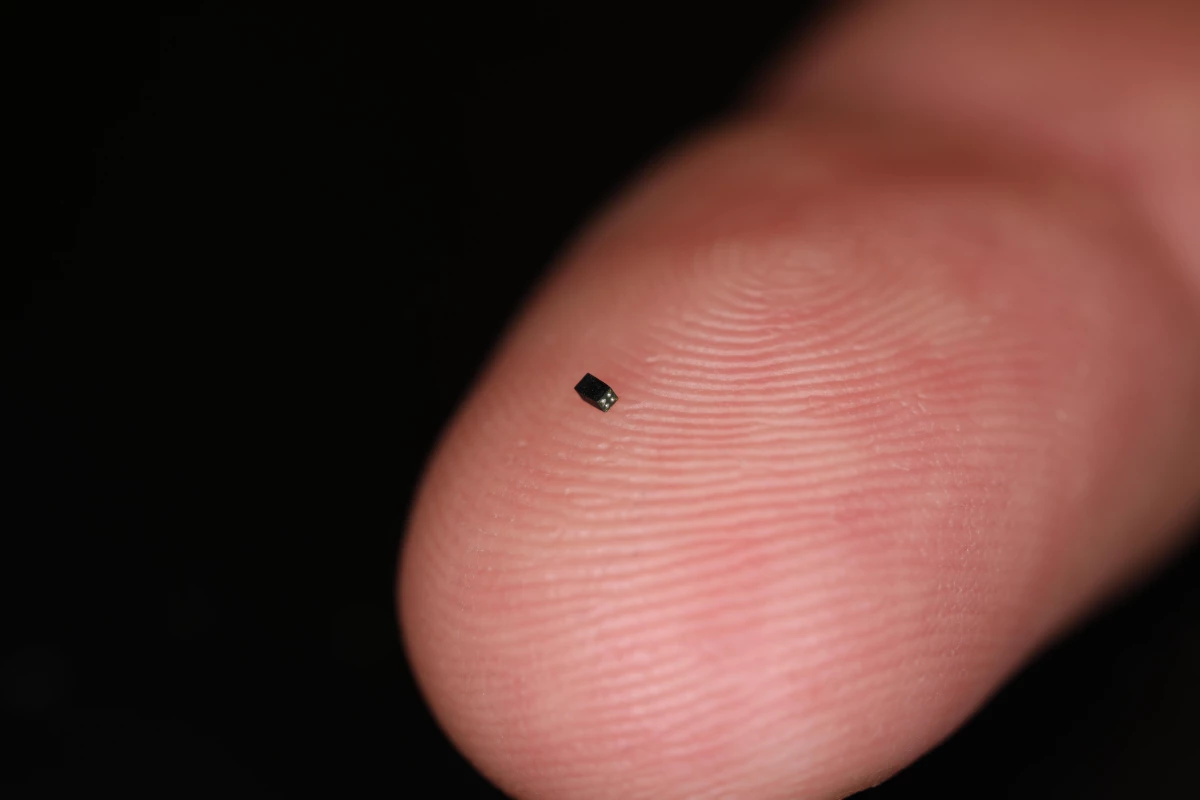OmniVision has announced that its OV6948 unit has been declared the world's smallest commercially available image sensor by Guinness World Records. And the company has now squeezed it into a new camera module.
The OV6948 measures a mere 0.575 x 0.575 x 0.232 mm (0.022 x 0.022 x 0.009 in) and has been installed in a complete camera module measuring 0.65 x 0.65 mm, which can be used in a 1-mm-diameter catheter or endoscope for 200 x 200 back-illuminated color images. The chip also features 120-degree field of view, 3 to 30 mm focus range and the ability to capture video at up 30 frames per second. As well as having potential use in neuro, cardiac, spinal and arthroscopy procedures, the technology could also find use in dental, veterinarian and industrial applications.
"Previously, procedures in the body’s smallest anatomy were performed either blind or using low quality images from fiberscopes, as existing cameras were too big and reusable endoscopes were not cost effective," said OmniVision's Aaron Chiang. "The OVM6948 wafer-level camera module offers a compact, high quality solution for disposable guidewires, catheters and endoscopes, which are experiencing growing demand because of their ability to reduce cross-contamination risks, downtime inefficiencies and costs associated with the repairs, preprocedural testing and sterilization of reusable endoscopes. In addition, these compact disposable medical devices can improve patient comfort and shorten recovery time."
Source: OmniVision




